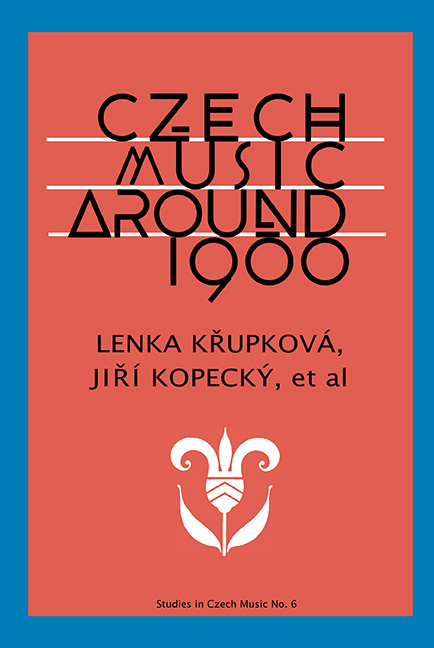Book contents
- Frontmatter
- Table of Contents
- Introductory Remarks on the Conception of This Book
- Flowers in the Graveyard, Tombstones in the Garden
- The “Other World” of Music at the Turn of the Century
- In the Footsteps of Tradition: The Spirit of Romanticism
- Czech Music at the Heart of European Music round 1900
- The Clash with Compositional Issues of European Music
- The Concept of Multi-Movement Structure within a Single Movement in the Music of Vítězslav Novák
- Heritage and New Paths in the Piano Sonatas of Vítězslav Novák and Leoš Janáček
- Josef Suk's Ripening and the Birth of the Czechoslovak Republic
- The Consequences of Conflict in the Czech Musical World: Zdenek Fibich as a Point of Contention in Novák's Polemics with Nejedlý
- Index
- List of Illustrations
- About the Authors
- List of Sources Cited
Josef Suk's Ripening and the Birth of the Czechoslovak Republic
from The Clash with Compositional Issues of European Music
- Frontmatter
- Table of Contents
- Introductory Remarks on the Conception of This Book
- Flowers in the Graveyard, Tombstones in the Garden
- The “Other World” of Music at the Turn of the Century
- In the Footsteps of Tradition: The Spirit of Romanticism
- Czech Music at the Heart of European Music round 1900
- The Clash with Compositional Issues of European Music
- The Concept of Multi-Movement Structure within a Single Movement in the Music of Vítězslav Novák
- Heritage and New Paths in the Piano Sonatas of Vítězslav Novák and Leoš Janáček
- Josef Suk's Ripening and the Birth of the Czechoslovak Republic
- The Consequences of Conflict in the Czech Musical World: Zdenek Fibich as a Point of Contention in Novák's Polemics with Nejedlý
- Index
- List of Illustrations
- About the Authors
- List of Sources Cited
Summary
Zrání (Ripening) is a poem in sound—a poem of dreams, with a rich, detailed, tapestry-like form of interwoven voices. It is so intuitive and personal that it is difficult to analyze by conventional methods. Suk himself tells us,
Consciously or unconsciously, I have learned much from German, French, Russian and other music, I have felt from my youth that it is my duty to express with what I had picked up. […] I express my own emotions and longings with my own musical discourse, which differs from that of other cultures […].
Characteristics of the structure of Ripening can help us infer what these influences might have been. Above all, Dvořák's late symphonic poems seem to lead directly to one of Suk's most distinctive traits: music is used to convey empathetic thought and human experience to the listener. The works of Mahler and Bruckner that were popular in Prague from 1900 to 1914 would have given Suk practical examples of large-scale compositions for orchestra whose impetus was emotional and descriptive content. It is quite possible that Suk attended the open rehearsals for the world premiere of Mahler's Seventh Symphony in Prague in 1908; we know that his mentor Hanuš Wihan did attend them.
Debussy's Pelléas et Mélisande was performed in Prague in 1908, and Strauss's Elektra in 1910. These works would have given him an example of expressive musical texture built on sound itself rather than thematic material. Like Debussy's great orchestral works, Ripening is not built of fixed, easily analyzable architectural forms, but of organic, constantly changing tissue. Like D'Indy, he uses linked, episodic segments that give the impression of natural breath rather than deliberate pattern. He may have heard Rimsky- Korsakov's suite from Tsar Sultan in 1914. Like that Russian master, Suk has an impressive command of orchestration which permits all of the parts to be clearly heard, even in complex textures. This skill is especially evident in the final corrections made to the autograph; extremely fine adjustments are made to the voicing of chords, to the shape and length of figurations, to unusual combinations of instruments.
- Type
- Chapter
- Information
- Czech Music around 1900 , pp. 265 - 282Publisher: Boydell & BrewerPrint publication year: 2017

